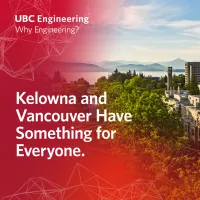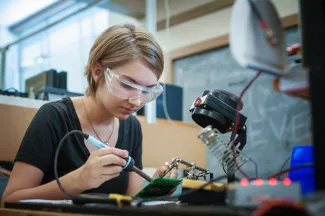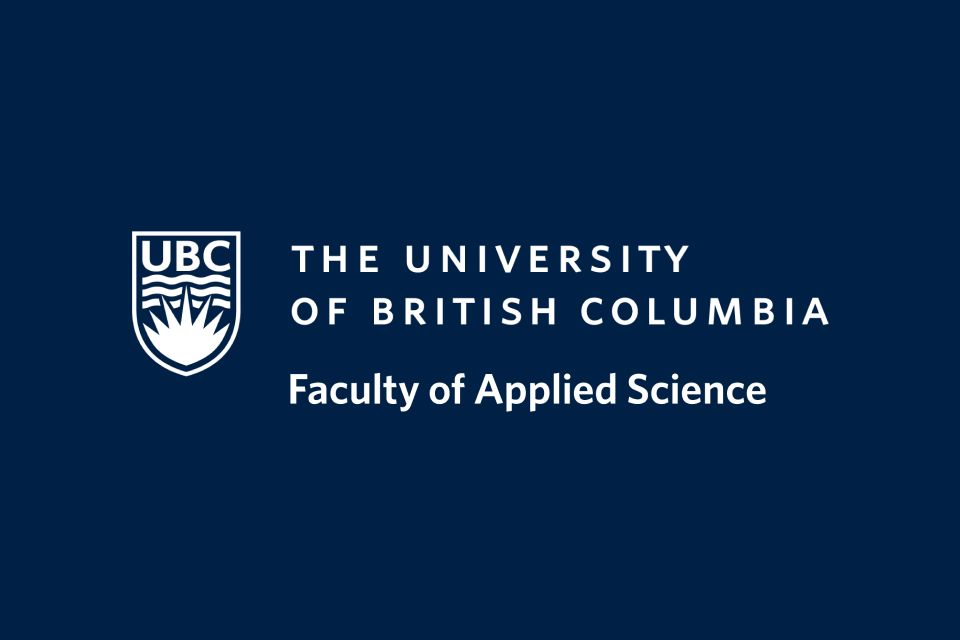"I deeply value meaningful relationships and meaningful work, and I was fortunate to experience both on campus."
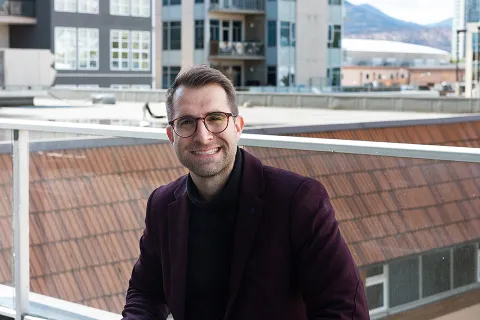
Jonathan Palmer
- Degree:
- Bachelor of Applied Science
- Grad year: 2011
- Program:
- Campus: Okanagan
Job: CEO of Extropic Energy Inc.; Vice President of Aurora Renewables
When did you first get interested in engineering?
My early engineering interest was inspired by my dad, who was incredibly multi-skilled—a Red Seal electrician, millwright and engineering technologist specializing in water utilities. His work always fascinated me. I vividly remember when I was about six years old and our family was moving from Squamish to Trail. After our moving sale, each of us kids was allowed to keep just one thing. I chose a box of capacitors and resistors. When I was 11 years old, my dad bought five 486DX2 computers and two printers for $10 at a local auction.
That led me into computer programming, which later led into starting my own web development business during high school.
When it came time to decide on a university path, I narrowed my options down to engineering or business. I ultimately chose engineering because I knew it would equip me with strong technical and problem-solving skills—skills that would be invaluable if I ever decided to start my own company.

Tell us about your experience at UBC.
What really stands out to me is the level of collaboration. My cohort at UBC Okanagan was a close-knit group, and we tackled everything together.
I deeply value meaningful relationships and meaningful work, and I was fortunate to experience both on campus. It was incredibly satisfying to see how, by working together, we could find solutions to any problem.
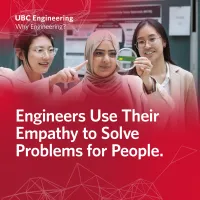
What does Extropic do?
We provide energy modernization solutions for projects across the entire spectrum, from individual buildings to entire energy systems. This includes everything from electric vehicle charging infrastructure to modernizing energy systems through battery energy storage and microgrids. A few recent examples of our work include developing the electrical master plan for UBC Okanagan, conducting a power grid resiliency study for the City of Penticton, and developing and implementing a solar and battery microgrid for the English River First Nations.
Last year we launched a sister company, Aurora Renewables LP, which is jointly owned with the Des Nedhe Group, an English River First Nations company, to build battery, microgrid and solar projects.

We have a great team of electricians, construction managers, equipment operators and others who build and maintain energy projects. We also do a lot of work together to build pathways towards energy sovereignty for Indigenous communities across Canada.
Extropic Energy Inc Aurora Renewables LP
It sounds like being an entrepreneur helps you have a larger impact.
Yes, I hope it does! When I was an undergrad, I read a great article in the IEEE by John McDonald who said that engineers often get stuck because they have great technical ideas and solutions but don’t speak the language of business that’s needed to get those ideas implemented.
As engineers, we can have a broader impact by getting involved on the business side. We also need to get involved with policy development – policies have an enormous impact on the journey to energy modernization and resiliency.

